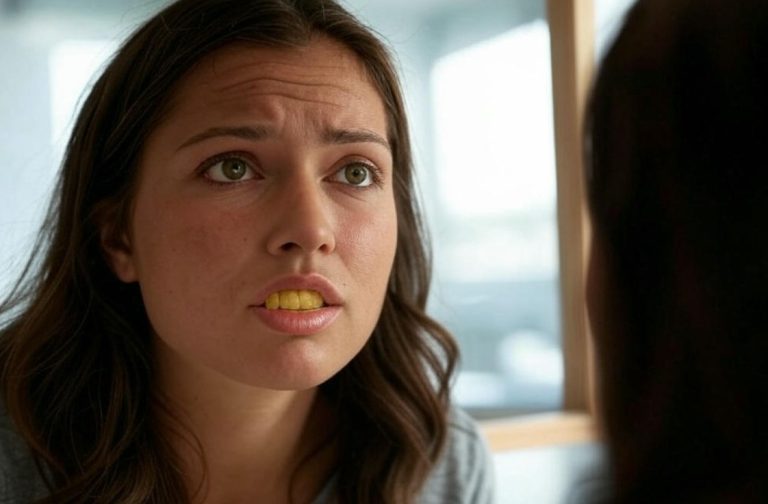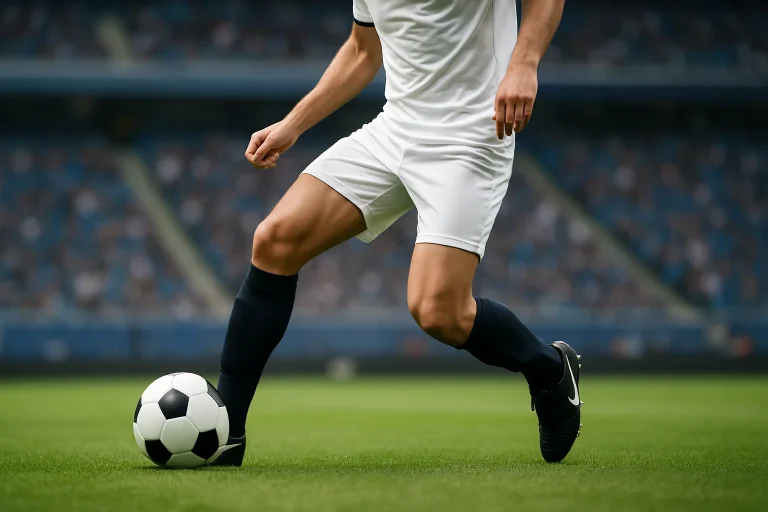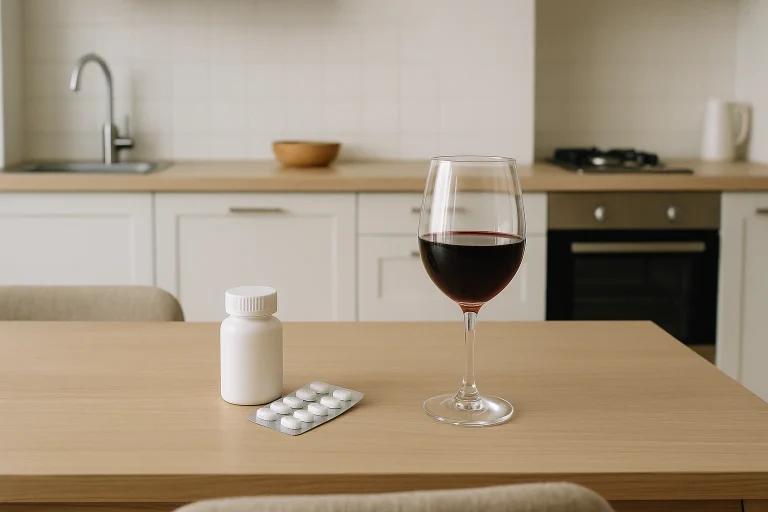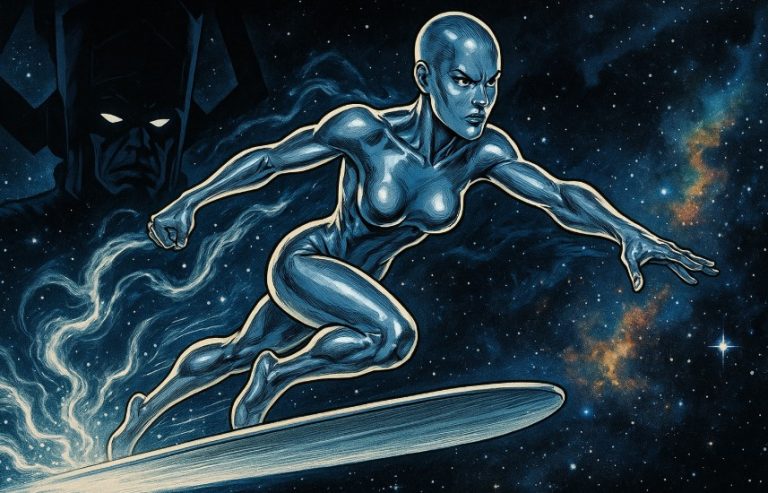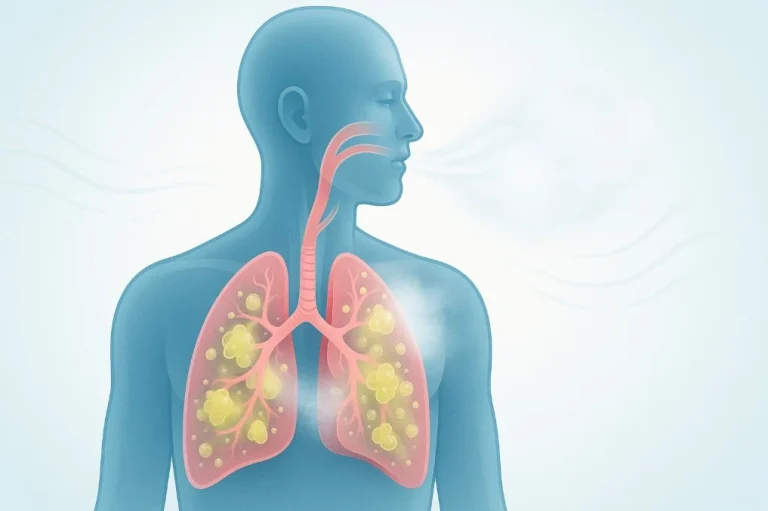Why do some people drink a cup of coffee expecting alertness, only to feel more tired afterwards? Caffeine is widely known as a stimulant, yet its effects can sometimes be counterproductive.
From sudden “caffeine crashes” to disrupted sleep, tolerance build-up, or even blood sugar fluctuations, several factors can explain why this paradox occurs.
This article explores the science behind caffeine, why it may cause tiredness instead of wakefulness, and practical ways to manage intake for better energy and focus.
How does caffeine interact with adenosine in the brain?
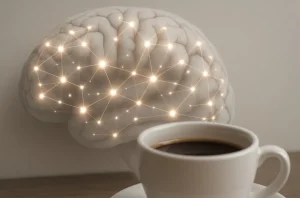
Caffeine’s main effect comes from its ability to block adenosine receptors. Adenosine is a brain chemical that builds up while a person is awake, gradually promoting drowsiness. Normally, adenosine binds to its receptors, slowing brain activity and preparing the body for rest.
When caffeine binds to these receptors, it prevents adenosine from attaching. This gives the brain a temporary sense of alertness. However, the adenosine continues to accumulate in the background.
Once the caffeine wears off, this built-up adenosine floods back into the receptors, leading to sudden tiredness often referred to as a “caffeine crash”.
Can caffeine cause dehydration and fatigue?
Caffeine is a mild diuretic, meaning it increases urination. While moderate consumption is unlikely to dehydrate most healthy adults, excessive intake without adequate water can cause fluid loss.
Dehydration can lead to headaches, reduced concentration, and sluggishness, all of which contribute to the feeling of being tired after coffee or energy drinks.
For example, a person who drinks several cups of strong coffee during the day but little water may confuse dehydration-induced fatigue for a lack of caffeine, prompting them to drink even more and worsening the cycle.
Does sugar in caffeinated drinks contribute to tiredness?
Yes, sweetened drinks can make the situation worse. Many popular caffeinated beverages such as energy drinks, flavoured lattes, or soft drinks contain significant amounts of sugar. This creates a rapid rise in blood sugar, followed by a sharp decline the so called “sugar crash”.
The combination of a caffeine crash and a sugar crash can leave individuals feeling more exhausted than before. For instance, while an energy drink might provide a quick lift before exercise or study, the subsequent dip can be much more severe than with black coffee or unsweetened tea.
Can caffeine disrupt sleep and cause daytime tiredness?

Caffeine’s half-life is typically between 2.5 and 5 hours, but it can linger much longer depending on metabolism. Consuming it late in the afternoon or evening can delay the onset of sleep and reduce sleep quality.
Even if someone falls asleep, caffeine reduces slow-wave sleep the deep, restorative stage. Poor sleep accumulates over time, meaning the morning cup of coffee may be compensating for fatigue created by caffeine itself. This cycle of poor sleep and increased caffeine use often leads to chronic tiredness.
Does caffeine affect stress hormones?
Caffeine stimulates the release of adrenaline and cortisol, hormones linked to the body’s stress response. Initially, this creates heightened alertness and a burst of energy. However, once hormone levels fall, many people feel drained, anxious, or more tired.
If stress levels are already high, caffeine can intensify the problem. For example, an office worker under pressure may drink coffee to stay focused, only to experience racing thoughts followed by exhaustion once the stimulation wears off.
What role does tolerance and withdrawal play in caffeine-related tiredness?
With regular consumption, the body adapts by creating more adenosine receptors. This means caffeine becomes less effective at blocking fatigue. People may then drink more to achieve the same boost, which increases the risk of jitteriness, crashes, and poor sleep.
If caffeine intake is reduced suddenly, withdrawal symptoms such as headaches, irritability, and fatigue can appear. These withdrawal-related tired spells often feel like the coffee itself is the problem, when in reality it’s the absence of caffeine.
Can caffeine affect blood sugar levels?
Research suggests caffeine can temporarily reduce insulin sensitivity, which may raise blood sugar levels. For some, particularly those with underlying blood sugar issues, this may result in fatigue, headaches, or difficulty concentrating.
For instance, someone who drinks coffee on an empty stomach may experience jitteriness followed by lethargy, partly due to fluctuations in glucose levels. While findings are mixed, blood sugar regulation appears to be another reason caffeine sometimes leads to tiredness.
Does metabolism speed influence how caffeine affects tiredness?

Not everyone processes caffeine at the same rate. Around 99% of caffeine is absorbed within 45 minutes of consumption, and peak concentration in the blood occurs one to two hours after drinking. The body then takes between 2.5 and 5 hours (or longer for some) to metabolise half of it.
Those who metabolise caffeine quickly may feel alert for a short time but tired soon after, as the stimulant leaves their system. In contrast, slow metabolisers may feel overstimulated for hours, which can harm sleep and cause next-day fatigue.
Why might people with ADHD feel tired after caffeine?
Interestingly, some people with ADHD report feeling more relaxed or even sleepy after caffeine. Since stimulants can help with focus and calmness in ADHD, caffeine may reduce hyperactivity or racing thoughts, which could be misinterpreted as drowsiness.
Research on this is limited, but it highlights how caffeine’s effects vary across different individuals.
Why do some people feel sleepy after coffee but not other caffeinated drinks?
While the mechanism of caffeine is the same across drinks, additional ingredients may change how people experience them. Tea contains L-theanine, which promotes calm alertness and may soften the crash. Energy drinks often contain far more caffeine plus sugar, creating sharper rises and falls in energy.
For example, a black coffee with 95mg of caffeine might feel very different to a 250ml energy drink with 160mg of caffeine and added sugar. This may explain why one drink leaves someone alert, while another makes them feel sluggish.
What can someone do to avoid feeling tired after caffeine?
There are several practical strategies to reduce tiredness linked to caffeine:
- Stay hydrated by drinking water alongside coffee or tea.
- Limit caffeine intake to under 400mg per day (about four cups of brewed coffee).
- Avoid caffeinated drinks within six hours of bedtime.
- Choose unsweetened options to avoid sugar crashes.
- Space consumption throughout the day instead of relying on one large dose.
- Support energy naturally with exercise, balanced meals, and quality sleep.
In some cases, consulting a doctor is recommended particularly if tiredness persists despite lifestyle adjustments.
Table: Why caffeine can make people tired?
| Cause | Mechanism | Example Scenario |
| Caffeine crash (adenosine) | Adenosine floods back into receptors when caffeine wears off | Feeling sleepy 2–3 hours after coffee |
| Dehydration | Caffeine’s diuretic effect increases urination, causing fluid loss | Multiple coffees but little water intake |
| Sugar crash | Blood sugar spikes then drops after sweetened drinks | Tired after energy drink or latte |
| Sleep disruption | Caffeine reduces deep sleep and delays sleep onset | Trouble sleeping after late coffee |
| Stress hormone decline | Cortisol/adrenaline spike then drop leaves body drained | Post-work coffee leading to fatigue |
| Tolerance and withdrawal | More adenosine receptors reduce caffeine’s effects | Daily coffee drinker needs larger doses |
| Blood sugar imbalance | Reduced insulin sensitivity may increase fatigue | Coffee on an empty stomach causes crash |
Conclusion
Although caffeine is used worldwide to fight tiredness, its effects are not always straightforward.
By blocking adenosine, raising stress hormones, influencing hydration and blood sugar, and disrupting sleep, caffeine can sometimes leave people more fatigued than energised. Factors such as tolerance, metabolism, and even ADHD can further shape individual responses.
Understanding these mechanisms and moderating caffeine use accordingly allows people to enjoy the benefits of alertness without falling into cycles of crashes and exhaustion.
FAQs
Why do I crash after coffee even when I’ve had enough sleep?
Caffeine blocks adenosine only temporarily. Once it wears off, the built-up adenosine returns strongly, creating sudden tiredness.
Can dehydration from coffee really make me tired?
Yes. Coffee’s mild diuretic effect can cause dehydration, which leads to fatigue, headaches, and sluggishness if not balanced with water.
Is tea better than coffee for avoiding tiredness?
Tea generally contains less caffeine and also provides L-theanine, which helps promote calmer, longer-lasting alertness with fewer crashes.
Can caffeine tolerance make coffee useless for energy?
Over time, tolerance develops as the body produces more adenosine receptors. This makes caffeine less effective and may lead to reliance or withdrawal fatigue.
Does caffeine affect blood sugar in healthy people?
Caffeine may temporarily reduce insulin sensitivity, leading to mild rises in blood sugar. While usually short-term, it can contribute to tiredness in some.
What’s the safe daily limit of caffeine for adults?
Most guidelines recommend a maximum of 400mg per day about four cups of brewed coffee, though sensitivity varies by individual.
Why do some people with ADHD feel tired after coffee?
For some with ADHD, stimulants like caffeine can calm hyperactivity, which may feel like drowsiness. Research in this area is still developing.
{
“@context”: “http://schema.org/”,
“@type”: “FAQPage”,
“mainEntity”: [
{
“@type”: “Question”,
“name”: “Why do I crash after coffee even when I’ve had enough sleep?”,
“acceptedAnswer”: {
“@type”: “Answer”,
“text”: “Caffeine blocks adenosine only temporarily. Once it wears off the built-up adenosine returns strongly creating sudden tiredness.
”
}
},
{
“@type”: “Question”,
“name”: “Can dehydration from coffee really make me tired?”,
“acceptedAnswer”: {
“@type”: “Answer”,
“text”: “Yes. Coffee’s mild diuretic effect can cause dehydration which leads to fatigue headaches and sluggishness if not balanced with water.
”
}
},
{
“@type”: “Question”,
“name”: “Is tea better than coffee for avoiding tiredness?”,
“acceptedAnswer”: {
“@type”: “Answer”,
“text”: “Tea generally contains less caffeine and also provides L-theanine which helps promote calmer longer-lasting alertness with fewer crashes.
”
}
},
{
“@type”: “Question”,
“name”: “Can caffeine tolerance make coffee useless for energy?”,
“acceptedAnswer”: {
“@type”: “Answer”,
“text”: “Over time tolerance develops as the body produces more adenosine receptors. This makes caffeine less effective and may lead to reliance or withdrawal fatigue.
”
}
},
{
“@type”: “Question”,
“name”: “Does caffeine affect blood sugar in healthy people?”,
“acceptedAnswer”: {
“@type”: “Answer”,
“text”: “Caffeine may temporarily reduce insulin sensitivity leading to mild rises in blood sugar. While usually short-term it can contribute to tiredness in some.
”
}
},
{
“@type”: “Question”,
“name”: “What’s the safe daily limit of caffeine for adults?”,
“acceptedAnswer”: {
“@type”: “Answer”,
“text”: “Most guidelines recommend a maximum of 400mg per day about four cups of brewed coffee though sensitivity varies by individual.
”
}
},
{
“@type”: “Question”,
“name”: “Why do some people with ADHD feel tired after coffee?”,
“acceptedAnswer”: {
“@type”: “Answer”,
“text”: “For some with ADHD stimulants like caffeine can calm hyperactivity which may feel like drowsiness. Research in this area is still developing.
”
}
}
]
}

